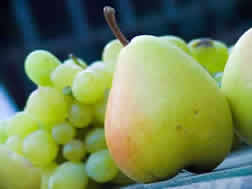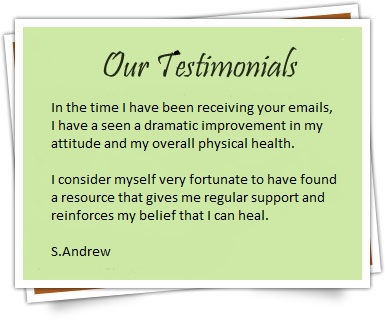Recovery Steps 5-8
“If you, or someone you love, suffers from Parkinson’s disease, then this is going to be some of the most important information you’ll ever read.!”
Step 5 – Revise your diet. Eat only best-quality, health-giving foods.
Recovering from any disease means improving the health of your whole person. I have not yet found a single dietary regime that has led to complete recovery from Parkinson’s disease. But eating healthy food is one of the most practical and best ways to start the process of getting well. Conversely, if you eat food with no nutritional value, your body will lack the resources for recovery.
So-called “primitive people”, before crowded village/city life became the norm, often lived 80+ years with no degenerative disease. We can learn from them and provide all the nutrition our body craves.
In this step, it is necessary to eliminate “foods that harm us” and consume the “foods that can heal us” if we want to be on the road to recovery. Harmful foods, additives, preservatives, flavour enhancers etc are riddled through our supermarket items. These chemicals are highly neurotoxic (i.e. they damage or kill nerve cells).
We need lots of vegetables, fruit, eggs, fish, nuts, seeds and herbs, plus some very lean meat, legumes, quinoa and buckwheat. We should consume very little “old” grains like rye, barley, millet, spelt, kamut and oats, but NO wheat or dairy foods.

Step 6 – Look for laughter. Find ways to laugh or pretend to laugh.
Scientists studying the physiology of laughter have found that many of the chemical changes that happen during laughter are the same as those that occur during exercise. Endorphins (our natural painkillers) and many neurotransmitters are boosted during laughter, while stress hormones like cortisol and adrenaline are suppressed.
Laughter helps to rebalance neurotransmitter production and increases dopamine production so it’s very helpful in combating Parkinson’s Disease. We can be our own clown-doctors to help our return to good health.

Step 7 – Meditate daily
People with Parkinson’s Disease share two very basic emotions – fear and frustration. We are frustrated that we can no longer do all the things we used to do, or do them as well as we used to, and we are afraid that we will continue to get worse and be able to do less and less.
Many conservative therapists will either ignore the emotional state of their patient, concentrating solely on the physical, or prescribe anti-depressants. The former exacerbates our frustration because we really do want to talk about it and find strategies to overcome it. The latter merely covers up an emotional situation that can be used to bring about a healthy life change. We can change the way we think and our emotions through meditation.
Who said meditation was difficult? We have all meditated at some time in our life, even if we called it something else. Here are ways to meditate without stress, and the reasons this can change our health for the better. An easy way to start is to sit quietly and fill your mind with a beautiful, peaceful, happy memory for 5 to 10 minutes every day.

Step 8 – Start a weekly Journal
This is a simple, easy and powerful way to keep track of your progress. Often, our symptoms change very slowly and we may not notice. If we don’t notice we are moving towards wellness, we may become discouraged. But, if we keep a weekly journal, and are honest about our symptoms, feelings, and what has happened during the week, over time we will see a pattern emerging showing just how well we are progressing.

